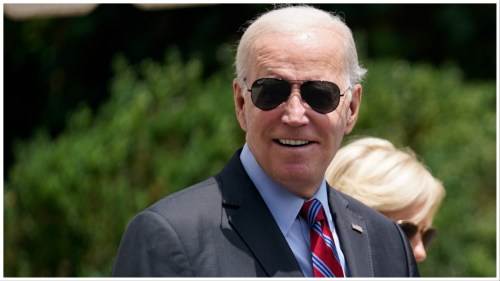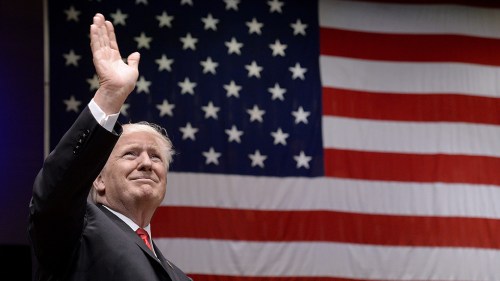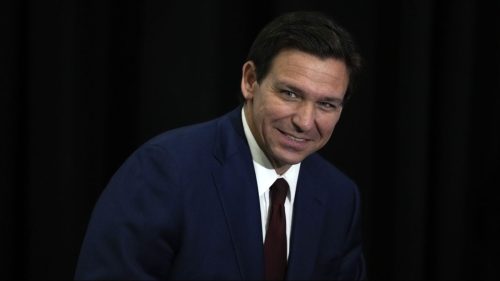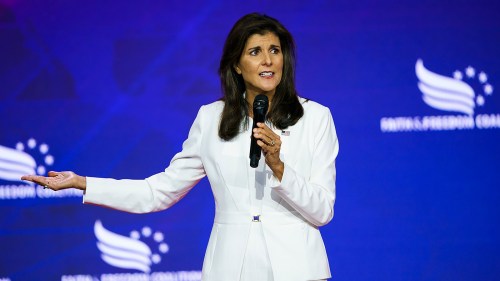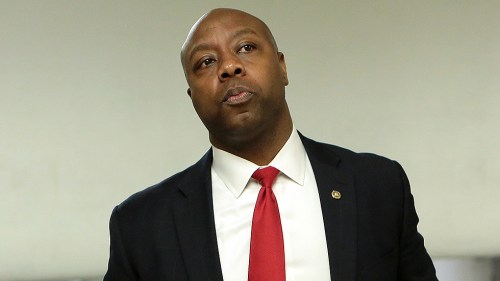How Trump’s Florida residency complicates Rubio’s path to VP
Former President Trump’s relatively new status as a Florida resident is complicating the potential of him choosing the state’s senior Sen. Marco Rubio (R) to run on the same ticket as him in November.
The 12th Amendment maintains that presidential and vice presidential candidates running on the same ticket “shall not be an inhabitant of the same state with themselves.” And theoretically, Florida electors would be blocked from voting for a Trump-Rubio ticket.
“Florida is a large state and a state that you hope to carry,” said Derek Muller, a law professor at the University of Notre Dame.
The amendment could prove to be a headache for the two candidates if Trump taps Rubio as his running mate. But legal experts say there are loopholes to get around the rule, which many Republican strategists argue could be worth it given the background and experience the senator could bring to a potential ticket.
“It wasn’t too long ago that [Rubio] was somebody in the conversation to be the future of the Republican Party. He adds a lot of pluses to the ticket,” said Ford O’Connell, a Florida-based Republican strategist. “The minus here is the 12th Amendment.”
There is precedent for presidential and vice-presidential candidates working around the amendment. In July of 2000, Dick Cheney changed his residency from Texas to Wyoming so he could run on the same ticket as then-Texas Gov. George W. Bush. Cheney represented the state in the House of Representatives from 1979 to 1989. Cheney changed his residency to Texas in 1993 when he bought a home in the state and resided in Dallas while he was chairman of Halliburton.
“The Constitution says the senators just have to be an inhabitant of the state when elected,” Muller said. “So you can move out of the state if you wanted to, it just creates a different kind of political cost and calculus if you do it that early,” he added, using July as a hypothetical date.
“And if you wait until November, when you win, you have a lot of steps to try to take in a very short period of time to try to establish residency, which can create separate problems if Congress wants to challenge your qualifications,” Muller said.
Unlike Cheney, Rubio only has ties to one state, Florida, having served as a city commissioner of West Miami, in the Florida House of Representatives and as a senator representing Florida.
And some Republicans say it is unlikely that Trump would change his Florida residency, which he declared in 2019, despite originating from New York and owning a business in New Jersey.
“I don’t necessarily think Donald Trump is going to want to take that chance with the way he’s been treated in blue-state courts thus far,” O’Connell said, referring to Trump’s recent guilty verdict in his New York criminal hush money trial.
According to the Bulwark, Trump has even acknowledged that “Marco has the residency problem.”
But there are workarounds for Rubio.
The senator could declare residency in Washington, D.C., given that he stays in the city when the Senate is in session. Some experts point out that Rubio could theoretically establish residency in another state with lax residence requirements, like South Dakota, where someone needs only to obtain a South Dakota mailing address and spend at least one day in the state.
Rubio is not the only Floridian that has been floated to be Trump’s running mate. Florida Reps. Byron Donalds (R) and Maria Salazar (R) have also been listed as potential contenders. And there are other Republicans being considered alongside Rubio, such as his colleagues Sens. Tim Scott (R-S.C.) and JD Vance (R-Ohio), along with North Dakota Gov. Doug Burgum.
However, Republican strategists and insiders say Rubio’s experience and high profile puts him toward the top. Republicans point to Rubio’s experience serving in local, state and federal government, as well as his experience serving as chair and vice chair of the Senate Intelligence Committee.
The Florida senator could also have the ability to appeal to Hispanic and Latino voters in key swing states like Nevada and Arizona, given his own background.
“He’s going to have an appeal to constituencies in some of these swing states that will decide the presidency,” said Justin Sayfie, a Florida-based Republican strategist.
One other constituency Rubio has the ability to appeal to is Trump’s critics within the Republican Party who voted for former U.N. Ambassador Nikki Haley over Trump in the 2024 GOP primary. Haley backed Rubio in 2016 during his run against Trump, but Rubio backed Trump over Haley in 2024.
Even though she dropped out of the race in March, Haley has been able to win over significant amounts of the GOP primary vote in subsequent states. In battleground Pennsylvania, Haley notably won more than 16 percent of the vote. Meanwhile, in Arizona, another critical swing state, Haley won 19 percent of the vote.
And despite a very public feud with Trump during the 2016 presidential race in which Trump dubbed Rubio “Little Marco” and Rubio said Trump had “small hands,” the Florida senator has since embraced Trump while still maintaining his appeal to more moderate Republicans.
“He is somebody who the ‘Never Trumpers’ trust,” said one Republican strategist speaking on anonymity. “Those Haley folks, they would trust Marco Rubio.”
Copyright 2023 Nexstar Media Inc. All rights reserved. This material may not be published, broadcast, rewritten, or redistributed. Regular the hill posts
Video/Hill.TV

